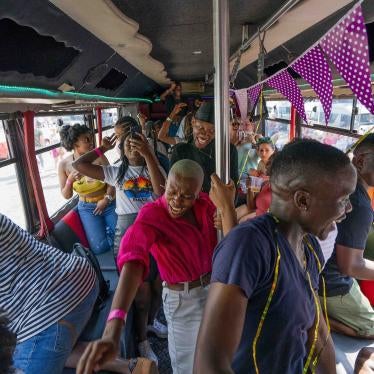Picture your 16-year-old son, brother, cousin or friend. Picture him without his parents in a strange country, where he is picked up by uniformed officials and put on a plane alone. Picture him dropped off in a strife-ridden city, like Kabul or Baghdad, and left to fend for himself. Picture having no idea where he will end up.
That is what the United Kingdom Border Agency wants to do to migrant children in Britain. It has a proposal to start deporting unaccompanied 16 and 17-year-old Afghans early this year, even if it cannot find the children's families back in Afghanistan. It is quite obvious that children returning to Afghanistan, especially under these circumstances, face risks of destitution, violence, and recruitment into armed forces.
Yet Britain is not the only country that wants to send children back: Norway, Sweden, and the Netherlands are all involved in a European platform addressing the issue. Unaccompanied migrant children, including Afghans, often travel for months in arduous conditions without their parents to get to Britain or other countries in northern Europe. They are vulnerable to exploitation and take on dangerous work to pay their way.
The UK took one positive step recently to protect migrant children. Children's commissioner Maggie Atkinson recently called a foul and put an end to parts of the secret 'gentleman's agreement' that sent migrant children back to France with little protection. Human Rights Watch's research in France found that migrant children in transit zones faced degrading treatment by police, detention with adults, little protection from traffickers, and a rapid screening system procedurally stacked against them. Many were summarily deported to their country of origin or even to a third country they had travelled through, regardless of whether they had family or ties there.
The decision to stop sending back minors under the 'gentleman's agreement' shows the need to be incredibly cautious about deporting children. They are getting sent back to horrible risks. But Britain has not yet got it right when it comes to unaccompanied migrant children. The Office of the Children's Commissioner for England just issued a new report Landing in Dover, which says that migrant children are detained and questioned for hours even if they arrive needing medical care. It shows the need to revise policies so that children who arrive in the UK will immediately have access to guardianship assistance and legal help.
Britain can put standards in place that prevent children from facing irreparable harm when they are returned to other countries. The UK needs clear, formal procedures for making decisions about sending children back to other countries, subject to an effective appeals process. Britain should protect the children's best interests, making sure they have a guardian, and making sure social services are included in decision-making as well as the UKBA. Return plans need to be sustainable – so children go back to somewhere they can build a life, not somewhere they will just be forced to leave again.
The UKBA should put its plans to deport children to Kabul on indefinite hold. Countries can, with appropriate safeguards, return children who arrive without immigration status. But let's make sure there are fair, thorough processes – and no more gentleman's agreements.








